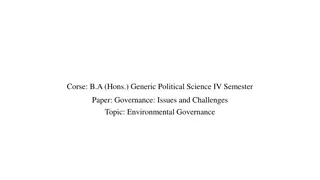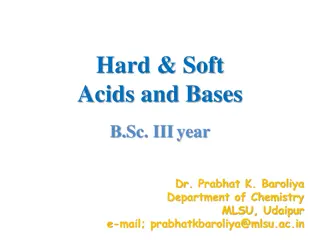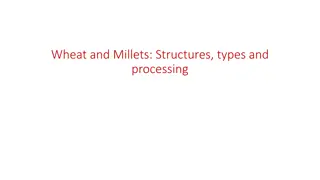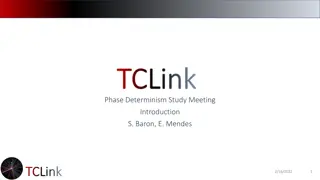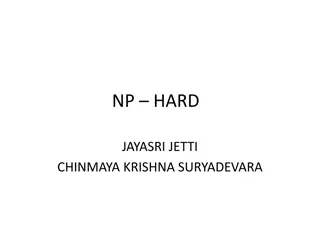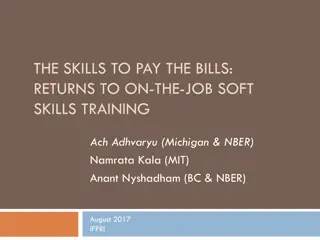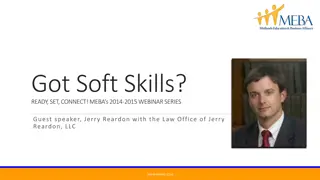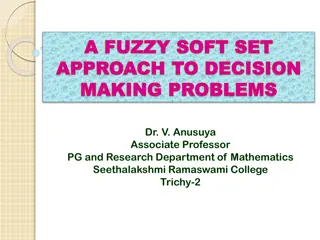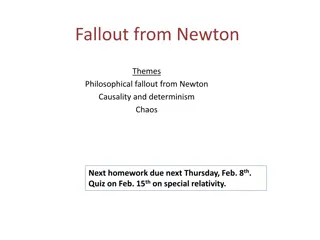Determinism: Hard and Soft Concepts Explored
Determinism posits that all events are determined by preceding causes, impacting human behavior as well. Hard determinism denies free will, attributing actions solely to external factors, while soft determinism allows for free will alongside external influences. Philosophical, scientific, and psychological perspectives on determinism shed light on the debate between determinism and free will, shaping concepts of moral responsibility and personal agency.
Download Presentation

Please find below an Image/Link to download the presentation.
The content on the website is provided AS IS for your information and personal use only. It may not be sold, licensed, or shared on other websites without obtaining consent from the author.If you encounter any issues during the download, it is possible that the publisher has removed the file from their server.
You are allowed to download the files provided on this website for personal or commercial use, subject to the condition that they are used lawfully. All files are the property of their respective owners.
The content on the website is provided AS IS for your information and personal use only. It may not be sold, licensed, or shared on other websites without obtaining consent from the author.
E N D
Presentation Transcript
4 B Concepts of determinism: Hard determinism: philosophical (John Locke - free will is an illusion, man in bedroom illustration), scientific (biological determinism - human behaviour is controlled by an individual's genes), psychological (Ivan Pavlov - classical conditioning). Soft determinism: Thomas Hobbes (internal and external causes), A.J. Ayer (caused acts v forced acts).
What is meant by determinism? Determinism means that an uncaused event is impossible. Cause leads to effect, so actions (effect) will have a cause that has come before. This includes the actions of humans. So, humans are not truly free. Our actions are determined by such things as our nature (our genes/ the way we are made ) and nurture (family background and upbringing, past experiences; essentially our environment.
Hard determinism Hard determinism also called incompatibilism, it claims that human behaviour is completely decided by external factors. Hard determinism says that a belief in determinism is opposed to (or incompatible with) a belief in free will. Free-will is an illusion. If anything must happen, then it is forced. If it is forced, it can t be free. There can also be no moral responsibility. We can t blame someone if they could not have acted differently. Equally there is no need to praise good deeds either. The people who did them had no choice to do differently. People are different, not better or worse. In this sense there is no sin as such. Hard determinism
Hard determinism - philosophical Philosophical determinism
Hard determinism scientific Scientific determinism
Hard determinism - psychological Psychological determinism
Soft determinism Soft determinism also call compatibilism, claims human behaviour is determined by external factors, but free will still exists. Soft determinism
Soft determinism A.J.Ayer Soft determinism Ayer
Soft determinism Stace and Hume Soft determinism Stace and Hume




